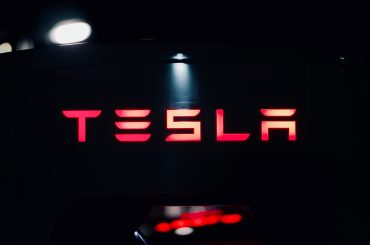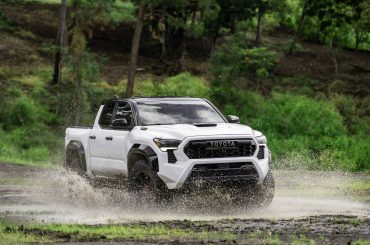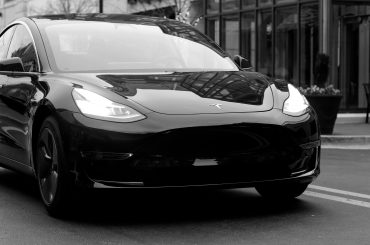Contents
Introduction Why do tesla cars have more range
Tesla cars have more range than their Competitor’s Vehicles. There are many reasons for this. As a Tesla lover and Automobile Engineer, I can clarify this fact through some simple reasons. So please read on to know them.
Tesla Batteries are made all around the World.
Tesla cars are made in the United States and China. This is because there’s a demand for them, which has nothing to do with their batteries or motors. Tesla makes its cars in the United States because there’s a massive market for them, so they can sell more than they would if made elsewhere. It’s also important to note that Tesla only produces high-end electric vehicles (EVs), which means that most of its revenues come from selling luxury models like Model S or X rather than cheaper ones like Model 3 (the latter being just under $3500).
In addition to being manufactured overseas by different companies around the World, sourced many parts used on Tesla were from different countries as well—and some even came directly from Asia!
Tesla’s Battery factories have advantages over others.

Tesla batteries are built to the highest standards of quality and durability. Tesla battery cells are made in the United States and then shipped to Asia for final assembly. This makes them more expensive than some competitors’ products, but it also means that you can count on your new Tesla vehicle having a longer life cycle than others on the market.
The materials used in each cell are carefully selected to withstand high temperatures and other environmental hazards, such as weathering effects from repeated charging cycles (which may cause rust or corrosion). The result is a battery that lasts longer than those manufactured by competitors who use lower-quality materials or do not follow good manufacturing practices like those used at Tesla’s factory facilities.
Tesla uses their battery space efficiently.
The size of a battery pack is one of the essential factors in determining how far you can drive on a single charge. The larger the pack, the more energy it holds and the longer it will last before needing to be recharged, but also the heavier it becomes — which means that less weight can be carried by an electric car with a large battery pack.
Tesla cars have more miniature battery packs than many other electric or all-electric cars because they use less electricity overall (and thus don’t need as much power). This means that even though Tesla’s vehicles might not seem quite “green” compared to other EVs out there, they still manage to get around comfortably without worrying about running out of juice too soon!
As we talked about batteries, let me show you more details.
| Car Model | Battery size | Drive wheels | Range in miles | Range in km | |
| TESLA | Model 3 | 50 kWh | RWD | 220 | 354.1 |
| TESLA | Model 3 | 54 kWh | RWD | 249.8 | 402 |
| TESLA | Model 3 | 62 kWh | RWD | 264.1 | 425 |
| TESLA | Model 3 | 75 kWh | RWD | 321.9-325 | 518-523 |
| TESLA | Model 3 | 75 kWh | AWD | 321.9 | 518 |
| TESLA | Model X | 75 kWh | AWD | 205.1 | 330.1 |
| TESLA | Model X | 90 kWh | AWD | 279-292 | 450-469.9 |
| TESLA | Model X | 100 kWh | AWD | 249.8-289 | 402-465 |
| TESLA | Model Y | 60 kWh | AWD | 186 | 299.3 |
| TESLA | Cyber Truck | 200 kWh | RWD Single-motor | 250 | 402.3 |
| TESLA | Cyber Truck | 200 kWh | AWD Dual-Motor | 300 | 482.2 |
| TESLA | Cyber Truck | 250 kWh | AWD Tri-motor | 500 | 804.7 |
| SUVs | Kia e-Soul | 31-38 kWh | AWD SUV | 93-243 | 150-391 |
| SUVs | Toyota Rav4 EV | 41.8 kWh | AWD SUV | 103 | 166 |
| SUVs | BMW Zinoro 1E | SUV | 93 | 150 | |
| SEDAN | Chevrolet Bolt | 60-66 kWh | FWD Hatchback | 238-259 | 383-417 |
| SEDAN | Renault Fluence | 22 kWh | FWD Sedan | 115-145 | 145-233 |
| SEDAN | Mercedes-Benz Blue ZERO | 36 kWh | FWD Hatchback | 124 | 200 |
| MINI | Renault Zoe | 22-52 kWh | FWD mini | 130-245 | 210-395 |
| MINI | BMW i3 | 22-42 kWh | RWD mini | 81-150 | 130-241 |
| MINI | Chery EQ1 | 31-38 kWh | FWD mini | 124+ | 200+ |
Tesla has a light body is also a reason for “Why do tesla cars have more range”
Tesla’s vehicles have a lightweight body, which helps to conserve energy and reduce the mass of the battery pack. This results in more range per charge. The smaller size of their battery chemistry also means they can fit into a small space while still storing enough power to operate most of today’s technology at total capacity.
Tesla has achieved these benefits by taking advantage of new technologies such as lithium-ion batteries (used by other car companies too). These advancements allow us to cram more power into our vehicles while keeping them lightweight and compact—making them ideal candidates for long drives!
All-wheel drive systems hurt range.

The primary reason why Tesla’s cars have more range than other electric cars is that they use an all-wheel drive system. This means that the car has multiple motors, which power both your vehicle’s front and back wheels. All-wheel drive systems are usually more complex than rear-wheel drive systems because they need special software and hardware to function correctly. They also take up more space inside the battery pack, so there is less room left for batteries or other components needed for charging the battery pack (such as motor controllers).
Overall, the Tesla car has more range than most other vehicles on the market. The combination of the battery size, battery chemistry and lightweight body allows them to have a more extended range.
Overall, the Tesla car has more range than most other vehicles on the market. The combination of the battery size, battery chemistry and lightweight body allows them to have a more extended range.
Photo Credits: Pexels.com
Read more on Electric Vehicles






